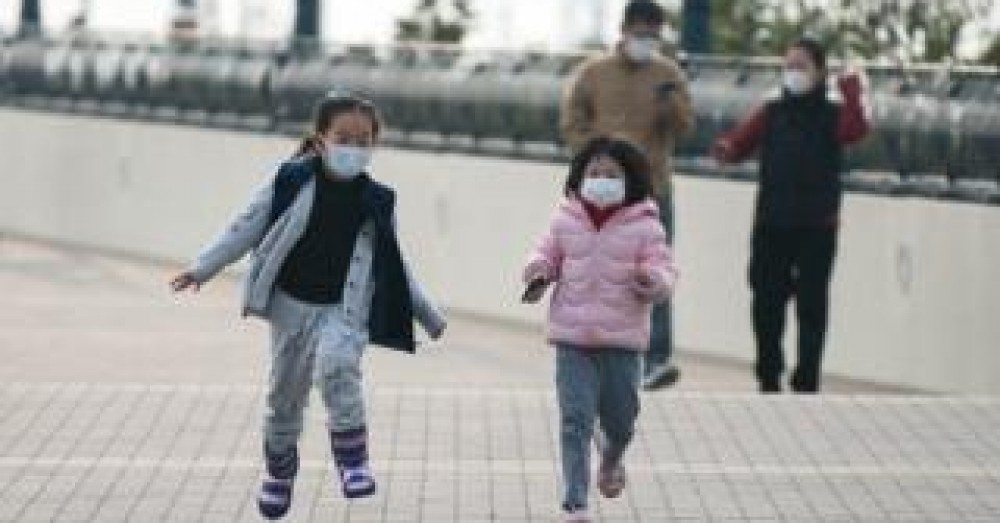There are concerns about a severe inflammatory symptoms in children that could be linked to coronavirus.
So what does this mean for how we understand the risks of coronavirus in young people?
What were the concerns?
An urgent alert was issued to GPs after several children presented with symptoms similar to Kawasaki disease - a potentially fatal syndrome that affects blood vessels - including a high temperature, low blood pressure, a rash and difficulty breathing.
The syndrome appeared to be similar to the over-active immune response, known as a "cytokine storm", seen in adults with Covid-19. In many cases it seems it's the body's immune response rather than the virus itself that proves life-threatening.
But these symptoms identified in children are rare events - known to affect about 20 children so far - and not all of them tested positive for Covid-19.
It remains the case that, overall, older people are at higher risk from coronavirus. It's far rarer for children to have severe symptoms.
Although extremely rare, there have been a small number cases of children who have become very ill and died.
The risk at different ages
The average age of people being admitted to critical care units in England, Wales and Northern Ireland was 60 as of 24 April, an audit by a research charity suggested.
Meanwhile, data from the US's Centers for Disease Control and Prevention (CDC) suggested over 65s were twice as likely to be hospitalised with coronavirus than 50-64-year-olds - who in turn were more than three times as likely to be hospitalised than 18-49-year-olds. Under-18s were the least effected group.
"Children have so far accounted for between 1% and 5% of diagnosed Covid-19 cases, have often milder disease than adults and deaths have been extremely rare," according to Prof Adilia Warris, a paediatric infectious diseases specialist at the University of Exeter.
But, Prof Rosalind Smyth, a consultant in paediatric respiratory medicine at Great Ormond Street Hospital points out, "our understanding of this condition in children is limited.
"We should investigate fully these children, with SARS-CoV-2, who present with a multi-system inflammatory disease to assess whether this is a presentation of Covid-19," she says.
When to seek help
Whilst coronavirus is infectious to children, it is rarely serious. If your child is unwell it is likely to be a non-coronavirus illness, rather than coronavirus itself.
The Royal College of Paediatrics and Child Health advises parents seek urgent help (call 999 or go to A&E) if their child is:
- Becoming pale, mottled and feeling abnormally cold to the touch
- Has pauses in their breathing (apnoeas), has an irregular breathing pattern or starts grunting
- Has severe difficulty in breathing becoming agitated or unresponsive
- Is going blue round the lips
- Has a fit/seizure
- Becomes extremely distressed (crying inconsolably despite distraction), confused, very lethargic (difficult to wake) or unresponsive
- Develops a rash that does not disappear with pressure (the 'Glass test')
- Has testicular pain, especially in teenage boys
Can children be spreaders?
Just because most children won't develop severe symptoms, doesn't mean they can't carry the virus and spread it to others through coughs and sneezes.
But we still have a lot to learn about how infectious people with no symptoms, or only very mild ones, actually are to others.
"One of the many unknowns with the current coronavirus outbreak is how many children are being infected and potentially passing on infection to others," says Prof Matthew Snape at the University of Oxford. He is about to begin research into how many children and teenagers have been infected and developed immunity.
"Understanding this is vital to understanding how to manage the outbreak response, including decisions about when to re-open schools," he says.
Early modelling, and a more recent study by researchers at the University College London, suggested the negative effects of school closures may outweigh any benefits of slowing the spread of the virus.
Pre-existing conditions
Underlying health conditions also play a role, regardless of age.
For example, there are about five-and-a-half million people in the UK of all ages who have asthma - and this puts you at higher risk of severe illness if you contract coronavirus.
Some may have undiagnosed conditions which may not be discovered until a coroner investigates.
Share This Post















